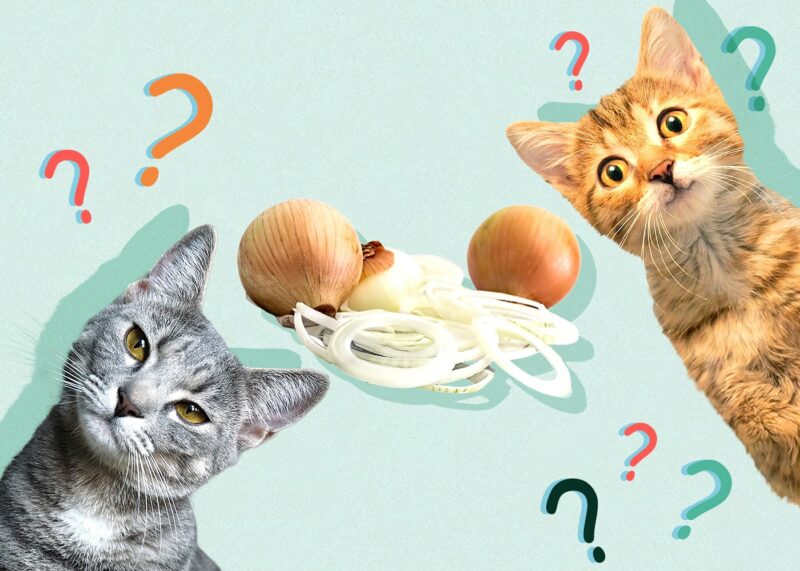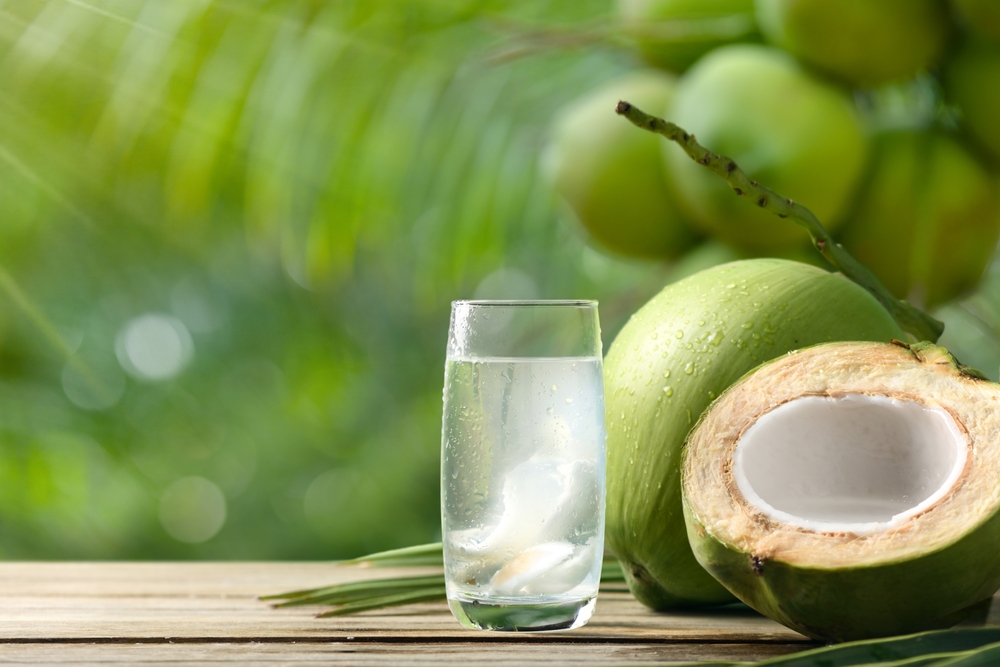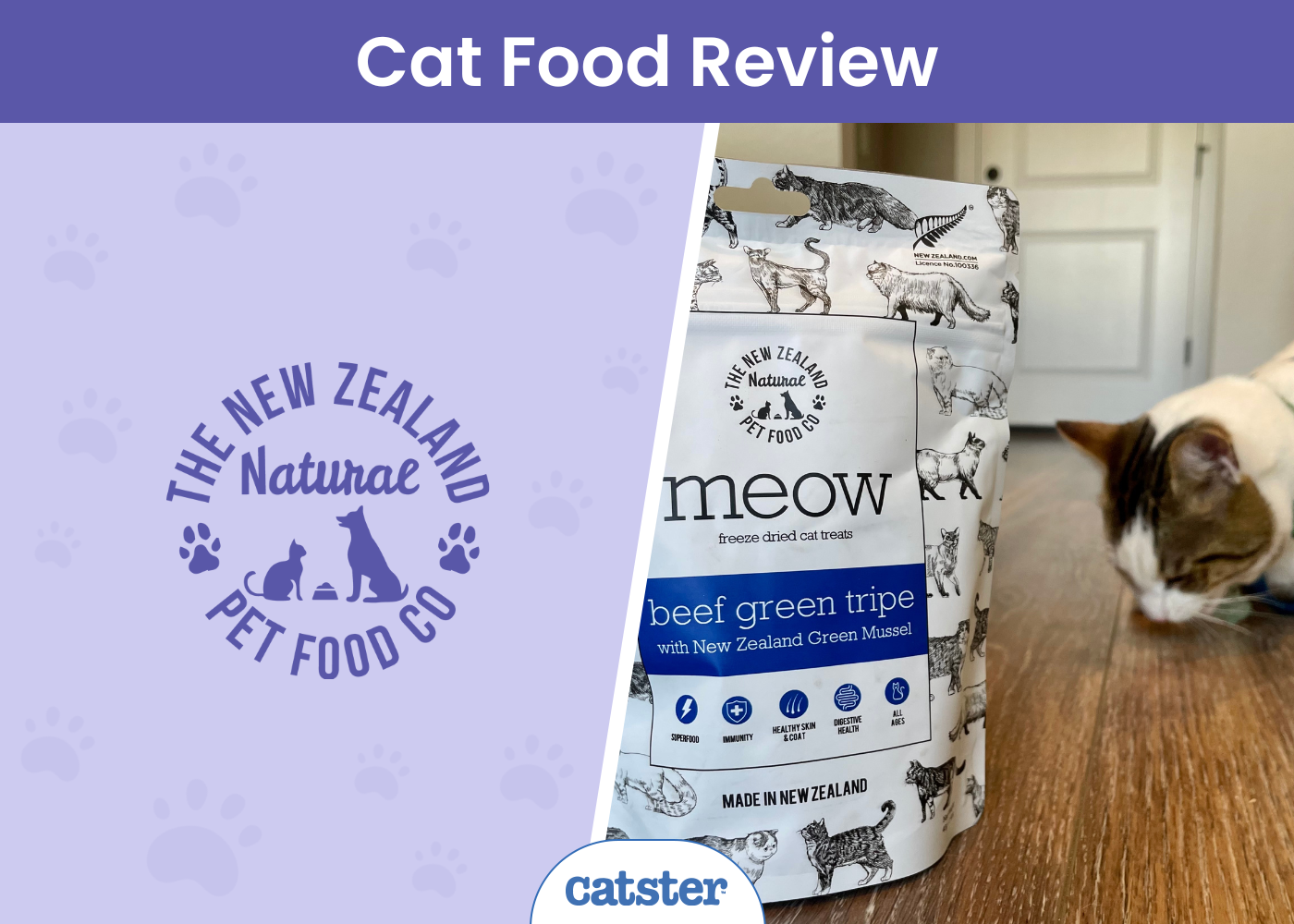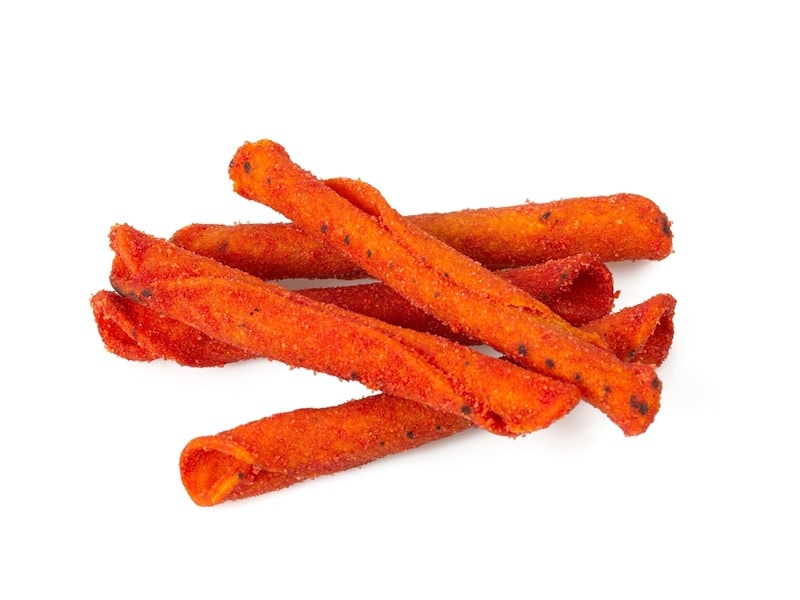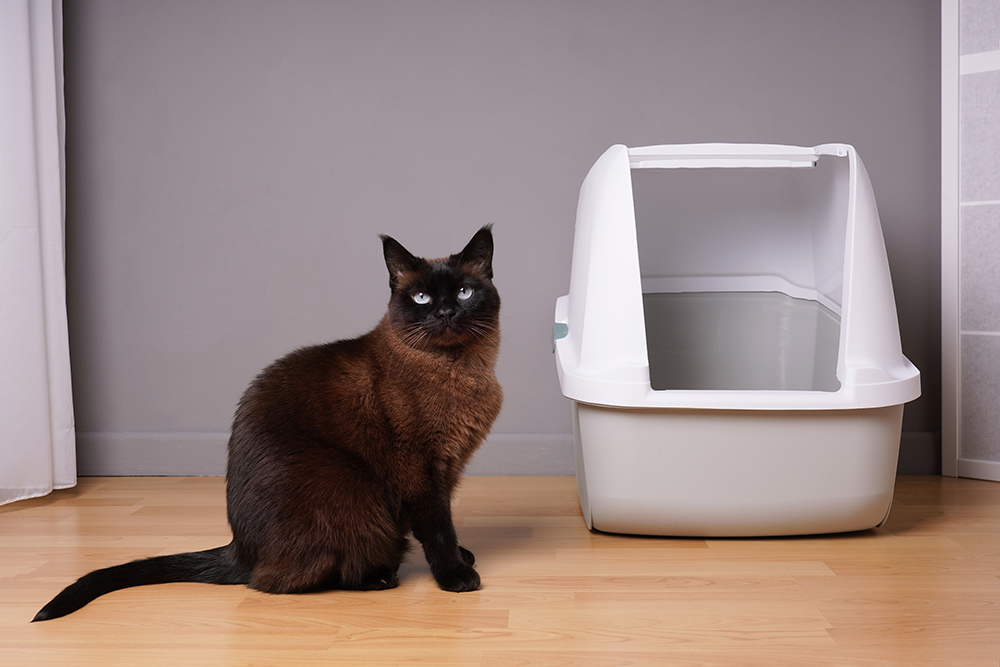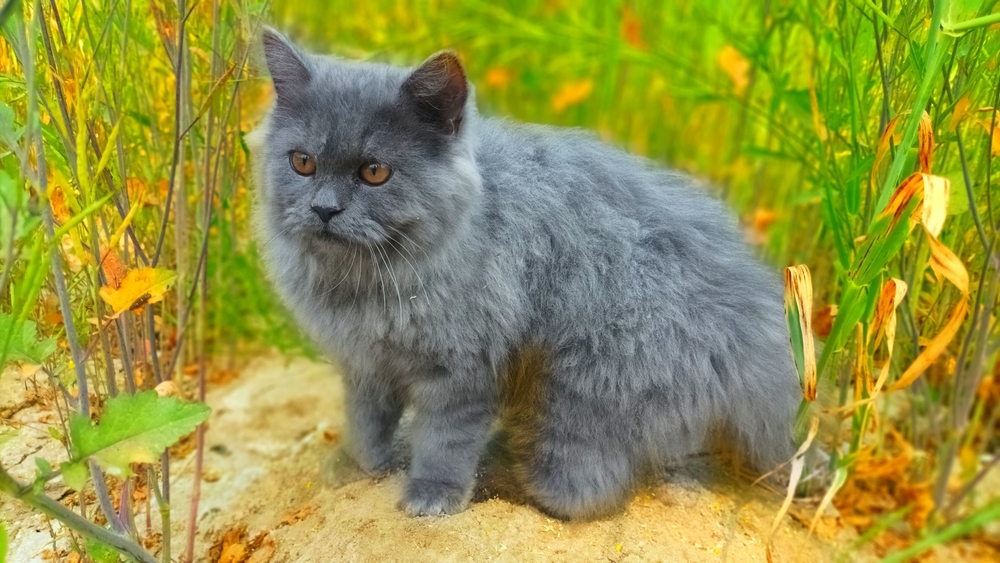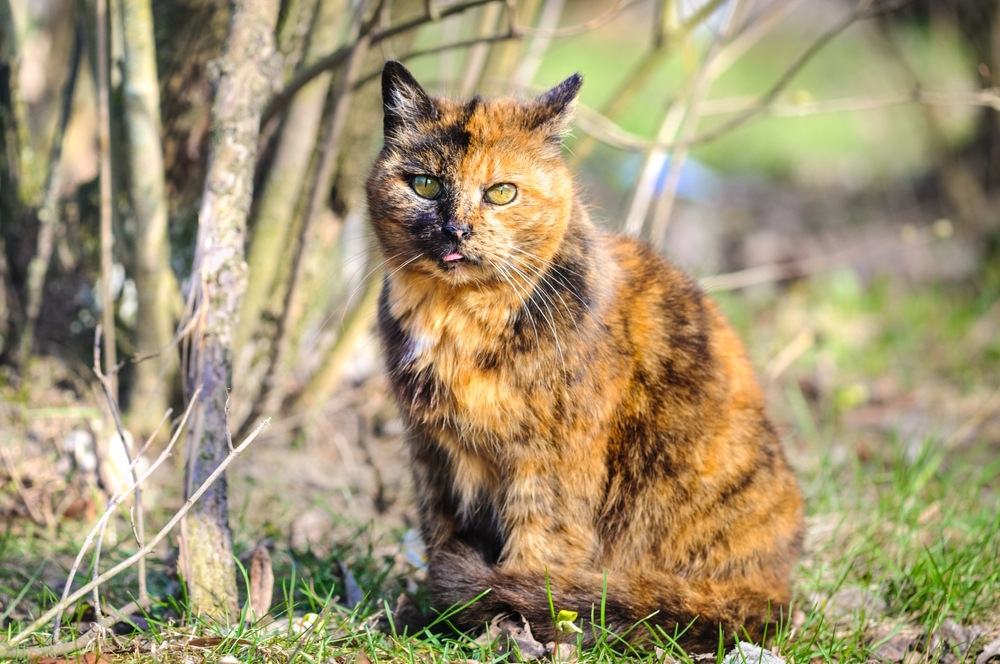Click to Skip Ahead
Any cat owner knows that our felines don’t always make the best choices about what they put in their mouth. Even the pickiest eaters will delight in snacking on your houseplants. So, if your kitty decides to eat either an onion or a dish that has onions in it, you may ask: Can cats eat onions? The answer is simple: no, never.
Your cats should stay away from onions at all costs, and that includes raw, cooked, and powdered forms of this potent veggie. But what makes onion so dangerous for your kitty? Let’s explain.
 How Dangerous Are Onions for Cats?
How Dangerous Are Onions for Cats?
Onions have the component oxidant n-propyl disulfide in them. Even eating the smallest amount of onion requires veterinary attention. Onions can make your cat extremely sick and even prove fatal if they aren’t treated immediately.
Your cat can suffer from onion toxicity because these plants cause red blood cells in your cat’s body to weaken and be destroyed. Red blood cells are responsible for carrying oxygen from the lungs all over your cat’s body, as well as carrying carbon dioxide away from your cat’s body back to their lungs. Weakened and non-functional red blood cells essentially deprive a cat of oxygen. It goes without saying that such a state is very detrimental for a cat. A state of low red blood cells is known as anemia. Though there are many types of anemia, they all are extremely detrimental to almost all domestic pets, including dogs and cats.
Unlike humans, their bodies just aren’t made with the correct elements to digest onions. Cats are even more sensitive than dogs to the effects of onions.
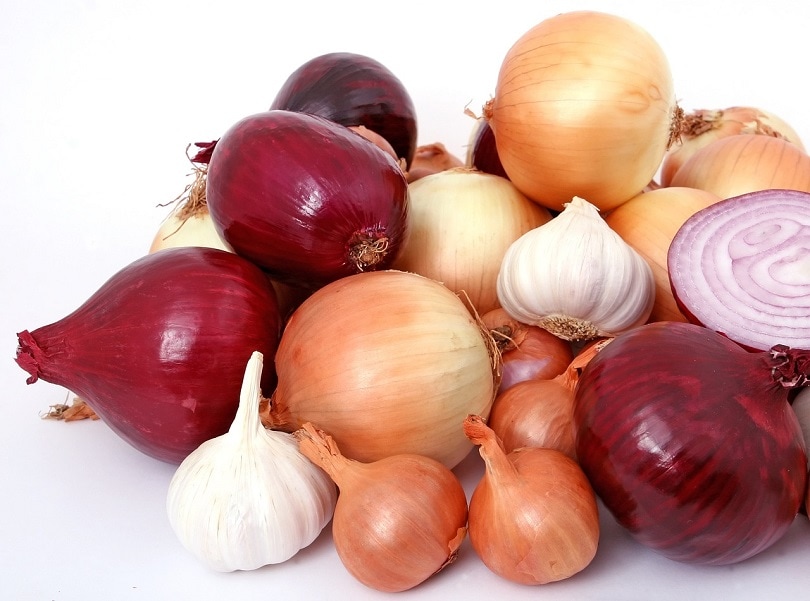
Can Cats Eat Garlic, Chives, or Leeks?
Garlic, onion, leeks, shallots, and chives are in the Allium genus. All allium plants contain the same harmful components that onions do, with garlic being at the top of the scale. Potency does play a factor, but any exposure to allium plants is unsafe.
Because the signs might not appear for up to 5 days after consumption, it’s crucial to know what to look for.
Signs of Onion Toxicity
If your cat has eaten part of an onion or eaten any food containing onion, you need to get them to your vet immediately. However, if you’re unaware it happened but notice the following signs, know that medical attention is imminent.
- Lethargy
- Weakness
- Salivation
- Pale gums
- Vomiting
- Diarrhea
- Lack of coordination
- Decreased appetite
- Blood in the urine
- Yellow mucous membranes
If you notice any of these signs, don’t wait. Something may be seriously wrong with your kitty and they need you to be proactive.
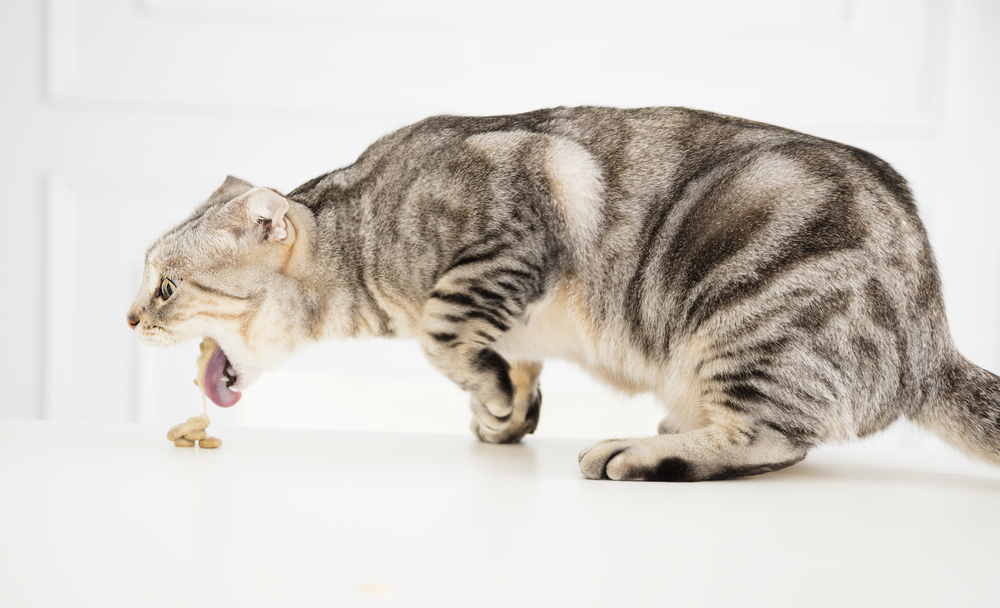
Diagnosis and Treatment
When you take your cat to see their vet after eating onions, they will do an immediate evaluation of the situation with all the necessary tests. Depending on the severity or amount, your vet may prescribe fluid therapy, administer charcoal treatments, or do blood testing.
The prognosis for minor episodes of onion ingestion is good if the amount consumed was minimal, you act fast, and your cat receives prompt medical attention. Even trace amounts of onion can damage your cat’s red blood cells, so observation and treatment are time-sensitive and crucial.

Foods to Watch Out For
Some foods might contain onion without you realizing it. Also, rarely, some products that are designed for cats could contain this lethal ingredient. Be very careful and always review any new food or snacks. If you find your cat reacting badly to a recently bought snack, it may be time to check the label.
You might not realize it, but many things contain onion powder, which is still highly toxic for cats. You might think nothing of sliding your cat a nice sliver of delicious chicken from takeout, but beware of the seasonings. Onion is remarkably popular for food flavoring.
- Baby food
- Seasoned meat
- Certain types of broth
- Gravy
- Several sauces
- Canned soup
Before you offer any table scraps or human food to your cat, do a quick sweep of what additives are in the recipe.
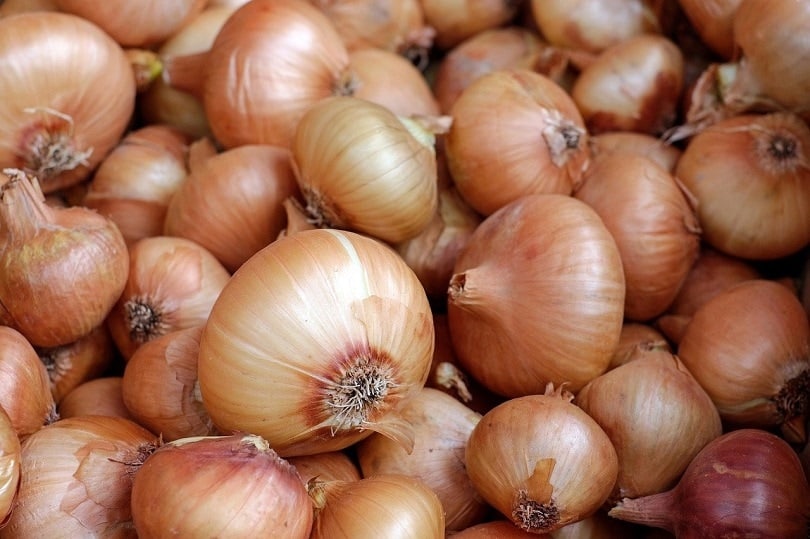

Final Thoughts
Keep your cat away from onions in all forms at any cost. It doesn’t matter if a portion of food only has a tiny amount of onion—it’s bad news for your feline. Plus, you’ll rack up a ton of vet bills that you can avoid simply by keeping them away in the first place.
Of course, we all know that cats are sneaky and do what they wish. If your innocent, defenseless feline swiped a piece of onion from your plate, contact your vet for further advice.
See Also:
Featured Image Credit: Catster.com


